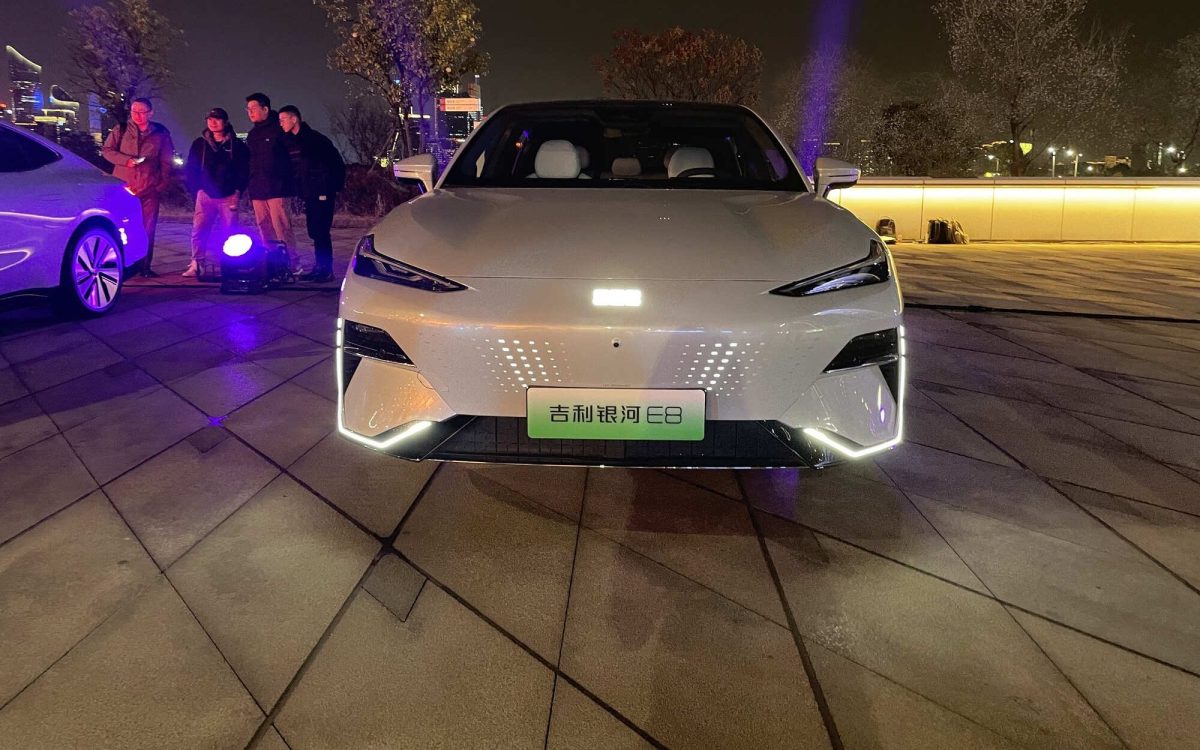Geely on Jan. 5 launched the first battery electric sedan under its mainstream luxury marque Galaxy, which the Chinese automaker hopes will take the crown from the likes of the BYD Han to become China’s best-selling model in the mainstream sedan segment.
“We are aiming to see the Galaxy E8 take pole position as a top-seller against the backdrop of increasing competition in the Chinese mainstream car segment,” Jerry Gan, chief executive of Geely Automobile Group, said in an interview after the launch event (our translation). The company did not provide specific sales targets, citing fluctuations in the market.
Volvo’s parent is looking to carve out a significant piece of China’s increasingly crowded medium-to high-end car segment. Approximately 65% of the new EV models debuted at November’s Guangzhou Auto show were priced between RMB 200,000 and RMB 300,000, including the Galaxy E8, its sibling Zeekr 007, and BYD’s Sea Lion, Jefferies analysts wrote in a research note dated Nov. 28.
BYD’s Han was 2023’s most popular electric sedan in the price segment with sales of more than 200,000 units. Geely posted sales of 83,497 vehicles under its Galaxy marque as of December, after deliveries began last June. It began deliveries of the E8 on Jan. 5 and has two other plug-in hybrid models for sale in the lineup, the L7 crossover and the L6 sedan, priced from RMB 138,700 and RMB 115,800, respectively.
Below are five key factors that Geely hopes will carry the Galaxy E8 sedan to success:
Pricing: The Galaxy E8, a five-meter-long flagship sedan, starts at RMB 175,800 ($24,612), which is RMB 34,000 below the base price of the BYD Han EV, and RMB 6,000 lower than the smaller, hybrid Toyota Camry. Its all-wheel drive version is priced at RMB 228,800 and additionally features an 800-volt system for fast charging and acceleration from 0 to 100 km/h (62 mph) in 3.49 seconds.
Smart cabin: Like its homegrown rivals, Geely has packed the luxury-styled but affordably priced sedan with technologies such as Qualcomm’s latest five-nanometer cockpit processor 8295, as well as a massive 45-inch wide 8K dashboard screen made by Chinese display manufacturer BOE. This makes the E8 probably the cheapest model that enables users to play hit gaming titles such as Asphalt in-car. By comparison, the 2025 Toyota Camry hybrid, which started pre-sales at RMB 181,800 in China on Jan. 1, is powered by Qualcomm’s previous 8155P processor.
Performance: The single-motor E8 has a power output of 200 kW and is equipped with a 62-kilowatt-hour battery pack, offering a driving range of 550 kilometers (342 miles), while the entry-level BYD Han is fitted with a 60.5 kWh battery and a 150 kW motor. The top-end version of the E8 boasts 800-volt fast charging that potentially adds 180 km on a five-minute charge; for comparison, all the variants of the more premium Zeekr 007 offer an additional 610 km from a 15-minute fast charging session.
Exterior: The capacious midsize sedan comes with a “ripples of light” design element, featuring an aesthetic front end with a 1.1 square foot illuminated graphics area comprising 158 micro-lights that can be programmed to display “over 100 different light shows,” according to Geely. It also has an aerodynamic design with frameless doors and concealed door handles, on a 2,925-millimeter-long wheelbase, making it slightly larger than the BYD Han.
Satellite assistance: The E8 is one of the incoming models that could provide satellite call services in areas with no cellular or WiFi signal. Geely said it will launch a further 11 telecommunication satellites into low orbit in February, following the successful launch of its first nine satellites more than a year ago, geared towards offering high-precision navigation for its self-driving cars, reported Reuters.

